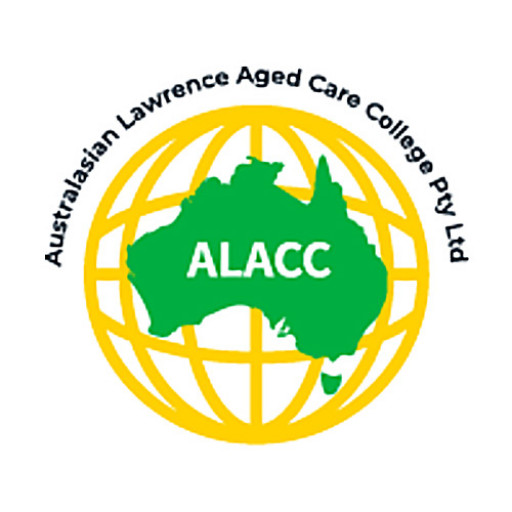Photos of university / #stockholmuniversity
The Bachelor's programme in English Linguistics at Stockholm University offers students an in-depth understanding of the structure, use, and functions of the English language. This comprehensive program is designed to explore various aspects of linguistics, including phonetics, phonology, morphology, syntax, semantics, and pragmatics, with a specific focus on the English language as used in different contexts and varieties around the world. Students will examine language from both a descriptive and theoretical perspective, gaining insights into how English has evolved and how it continues to change in modern communication.
Throughout the programme, students will engage in extensive language analysis, acquiring skills in transcription, language variation, corpus linguistics, and language acquisition. The curriculum emphasizes both foundational linguistics theories and practical applications, preparing graduates for careers in teaching, translation, interpretation, language technology, and research. In addition to core linguistic courses, students can choose from elective modules that cover recent developments such as computational linguistics, discourse analysis, sociolinguistics, and psycholinguistics.
The programme emphasizes active learning through seminars, workshops, and projects, encouraging students to analyze authentic language data and engage critically with linguistic research. As part of their studies, students will also have opportunities for internships and collaborations with research institutions, providing valuable real-world experience. The programme is taught in English, fostering a multilingual and multicultural academic environment, and preparing students to work in international settings.
Graduates of the Bachelor's programme in English Linguistics will be equipped with analytical skills and a comprehensive understanding of the language, enabling them to pursue further studies at the master's level or enter diverse professional fields such as language education, publishing, editing, language technology development, and the media. The programme at Stockholm University aims to develop reflective and knowledgeable linguists who are capable of applying their skills in various professional and societal contexts, contributing to a deeper understanding of the English language and its role in global communication.
The Bachelor's programme in English Linguistics at Stockholm University offers a comprehensive exploration of the English language, its structure, history, and use in diverse contexts. Throughout the three-year course, students will develop a deep understanding of linguistic theories, phonetics, phonology, morphology, syntax, and semantics, focusing specifically on the English language. The programme emphasizes both theoretical foundations and practical applications, preparing students for careers in education, research, communication, publishing, or further academic studies.
Students will engage in analyzing English language varieties, dialects, and accents, exploring how language varies across different regions and social groups. The programme also covers language acquisition and development, providing insights into how English is learned as a first or second language. Special attention is given to language change over time, investigating the historical development of English from Old English to modern times, as well as contemporary linguistic phenomena.
In addition to core linguistics courses, students will acquire skills in academic writing, critical reading, and research methodologies. Practical modules may include phonetic transcription, language data analysis, and the use of digital tools for linguistic research. The programme fosters a reflective approach to language, encouraging students to consider issues of language policy, gender, and identity, and their influence on English language use globally.
Throughout the programme, students will participate in seminars, workshops, and individual projects, promoting analytical thinking, original research, and collaborative learning. Opportunities for internships or exchange studies might also be available, enhancing practical skills and cultural understanding. Graduates of the programme will be equipped to analyze language data, interpret linguistic patterns, and communicate findings effectively, laying a solid foundation for advanced studies, teaching, or careers in fields related to language and communication.
Overall, the Bachelor’s in English Linguistics at Stockholm University provides an in-depth, multidisciplinary approach to understanding the complexities of the English language, fostering critical thinking and analytical skills essential for university-level research and professional pursuits in linguistics and beyond.
Program requirements for the Bachelor's Degree in English Linguistics at Stockholm University typically include a combination of prerequisite courses, proficiency in English, and specific application procedures. Applicants are generally expected to have completed secondary education equivalent to Swedish upper secondary school, with a focus on English language and literature or related fields. A high level of proficiency in English is mandatory, often demonstrated through standardized tests such as the IELTS with a minimum score of 6.5 or the TOEFL with a minimum score of 90 on the internet-based test. Additionally, applicants must submit a completed application form through the Swedish national application portal, along with certified transcripts, a motivation letter, and possibly a CV outlining relevant academic and extracurricular experiences.
For international applicants, proof of English language proficiency is a critical component of the admission process, and these requirements may vary depending on the applicant's country of origin or previous education institution. The program emphasizes analytical and critical thinking skills, encouraging students to engage deeply with the structure, history, and use of the English language across different contexts. Admission is competitive, and applicants are assessed holistically, considering academic records, motivation, and relevant experiences.
There are no strict prerequisite courses specified beyond the general entry requirements; however, prior knowledge of linguistics, English literature, or related fields studied at a university level can be advantageous. The program is designed to prepare students for careers in education, research, publishing, or other fields requiring advanced language skills. Furthermore, students may be required to participate in certain orientation activities and to meet specific deadlines for application submission. The program's curriculum is structured to provide a comprehensive understanding of linguistic theory, phonetics, syntax, semantics, and sociolinguistics, among other topics, and successful applicants should demonstrate a strong interest and foundational knowledge in these areas.
Want to improve your English level for admission?
Prepare for the program requirements with English Online by the British Council.
- ✔️ Flexible study schedule
- ✔️ Experienced teachers
- ✔️ Certificate upon completion
📘 Recommended for students with an IELTS level of 6.0 or below.
Financing studies for the Bachelor's programme in English Linguistics at Stockholm University are primarily funded through a combination of government funding, tuition fees (for non-EU/EEA students), and scholarships. Swedish students admitted to the programme do not pay tuition fees, as Swedish and EU/EEA students are covered under the Swedish higher education system, which is publicly funded. International students from outside the EU/EEA are required to pay tuition fees that vary depending on the specific programme and level of study.
Stockholm University offers a range of scholarship opportunities to support international students financially. The university's scholarship programs include the Stockholm University Scholarship Scheme, which is primarily aimed at students from outside the EU/EEA who demonstrate academic excellence and meet specific eligibility criteria. These scholarships can cover partial or full tuition fee waivers but generally do not include living expenses.
In addition to scholarships, students can explore external funding options such as national grants, private scholarships, and international financial aid programs. Students are encouraged to seek grants offered by their home country or international organizations that support higher education studies abroad.
Living costs in Stockholm constitute a significant part of the overall financing for students studying the programme. Students are advised to budget for accommodation, food, transportation, books, insurance, and personal expenses. The estimated living costs in Stockholm are around 10,000 to 15,000 SEK per month, which students often need to finance through personal funds, part-time work, or family support.
Part-time work is a common supplementary source of income for students during their studies, with restrictions on the number of hours allowed for international students. Students with valid residence permits for studies in Sweden can work up to 20 hours per week during term time. Many students find employment in cafes, restaurants, retail, or university services, helping to manage their living expenses.
Overall, financing studies in the English Linguistics programme involves a mixture of personal funds, scholarships, and part-time employment opportunities, in compliance with Swedish regulations. Stockholm University provides comprehensive support and guidance to students seeking financial aid and planning their study expenses effectively, ensuring that capable students can pursue their degree without undue financial hardship.
The Bachelor's program in English Linguistics at Stockholm University offers students a comprehensive introduction to the fundamental principles and innovative developments within the field of English language studies. This programme is designed to equip students with a deep understanding of the linguistic structures, functions, and variations of the English language, both historically and in contemporary contexts. Throughout the course, students explore a wide range of topics including phonetics, phonology, morphology, syntax, semantics, and pragmatics, which collectively provide a solid foundation for analyzing the complexities of English as a global language.
Additionally, the programme emphasizes the social and cultural aspects associated with language use, examining how English varies across different regions, social groups, and contexts. Students also engage with theories of language acquisition, language change, dialectology, and language policy, fostering a well-rounded perspective on the dynamics of the English language. Practical skills are developed through exercises in linguistic analysis, data collection, and critical evaluation of linguistic texts, preparing graduates for careers in education, research, translation, and language consultancy.
The programme benefits from Stockholm University’s strong research environment and collaborations with international institutions, providing students with opportunities for participation in seminars, workshops, and language projects. The curriculum is designed to instill analytical and communication skills, encouraging students to pursue independent research and critical thinking. A semester abroad or internship placements may be available, allowing students to gain cross-cultural and industry-specific experience. Upon graduation, students will be proficient in analyzing language data, understanding linguistic diversity, and applying linguistic theories to real-world language challenges. This degree forms a solid foundation for further research in linguistics or related fields, including postgraduate studies and professional careers in linguistics, education, media, and technology sectors.






